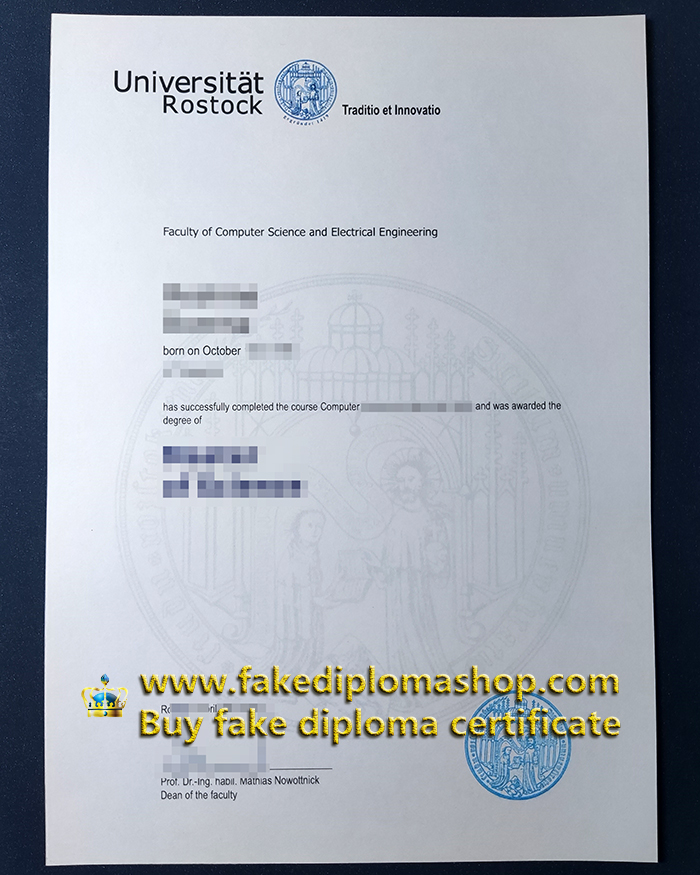
fake University of Rostock diploma
What is a fake University of Rostock diploma of Master equivalent to? Who can make a nice University of Rostock diploma for me? Can I buy a fake University of Rostock diploma from the fakediplomashop? How much cost a University of Rostock Master degree? Where to buy a fake University of Rostock diploma for a better job? The University of Rostock (German: Universität Rostock) is a public university located in Rostock, Mecklenburg-Vorpommern, Germany.
The university has been associated with four Nobel Prize winners: Albrecht Kossel, Karl von Frisch, Otto Stern and Walter H. Schottky. It is a member of the Association of European Universities. It is the most beautiful university in Germany and the fourth most beautiful in all of Europe, according to the 2018 Times Higher Education rankings. The languages of instruction for some postgraduate studies are usually German and English.
Founded in 1419 with the approval of Pope Martin V, it is one of the oldest universities in Northern Europe. Only five universities in Germany were founded earlier, and only two, Heidelberg and Leipzig, have operated continuously since then: Heidelberg (1386), Cologne (1388), Erfurt (1392/1994), Wurzburg (1402/1582), and Leipzig (1409). This makes the University of Rostock the third oldest continuously operating university in Germany.
What are the advantages of buying a fake University of Rostock diploma?
Throughout the 15th and 16th centuries, the University of Rostock had about 400 to 500 students a year, making it one of the most important universities in Germany and Northern Europe at the time, many of them from the Low countries, Scandinavia or other countries bordering the Baltic Sea.
The university became Protestant in 1542, a few years after the city of Rostock was founded. Since then, humanitarianism and Lutheranism have characterized the university. However, after the Thirty Years’ War (1618-1648), the University of Rostock played only a regional role for about two centuries. However, after the transfer of “ownership” of the university from the city in the state (the Grand Duchy of Mecklenburg-Schwerin) in 1827, things changed for the better. In the second half of the 19th century, Rostock’s Alma matter undertook a generous building campaign, and the university soon regained its former reputation among German universities.

